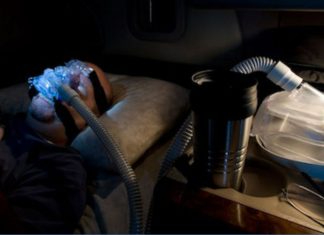In 2023, a staggering number of over 38,000 commercially licensed truck drivers tested positive for marijuana in federally mandated drug screenings, highlighting a growing concern within the U.S. trucking industry. The U.S. Department of Transportation’s report also noted an unprecedented level of non-compliance, with approximately 13,000 drivers failing to appear for their required tests—the highest such figure on record. This situation underscores a significant challenge in maintaining safety standards while also reflecting the changing societal views on marijuana usage.
Federal regulations require that commercially licensed drivers undergo random drug testing, specifically targeting marijuana through urinalysis. This test detects the non-psychoactive metabolite carboxy-THC, which can linger in urine long after the last use. Importantly, a U.S. Department of Justice report clarifies that the presence of this metabolite does not necessarily imply drug misuse, addiction, or impairment, merely indicating past use.
Since the introduction of stricter drug testing in 2020, more than 139,000 drivers have failed tests for cannabis, a figure that vastly exceeds failures for all other substances combined. Notably, about 70 percent of these drivers have not returned to the industry, reflecting the severe career implications of these failures. This sharp increase in positive tests and the subsequent workforce reduction highlight a critical tension between regulatory standards and the practical realities of driver availability.
In response to these challenges, the U.S. Department of Transportation considered updates to its drug testing guidelines in 2023, proposing the inclusion of oral fluid tests as an alternative to traditional urinalysis. This potential shift aims to refine the testing process, though these changes have not yet been implemented. Meanwhile, states such as California and New York have amended their laws to prevent the dismissal of employees based solely on positive tests for THC metabolites, although federal license holders remain exempt from these protections.
The regulatory landscape has indeed become more stringent over recent years. Truck drivers now face quarterly random drug tests and additional screenings post-accidents or traffic citations as mandated by the Federal Motor Carrier Safety Administration (FMCSA). Those testing positive are immediately prohibited from operating commercial motor vehicles. Furthermore, a federal database established in 2020 now tracks all drivers who fail drug tests to prevent them from being inadvertently hired by other companies.
The introduction of this database has had significant repercussions. By late 2021, it affected nearly 110,000 truckers, with marijuana-related cases accounting for 56% of the total. Despite over 6.4 million queries being made to the database by December of that year, more than 81,000 drivers were listed as “prohibited” from working, with the majority yet to begin the necessary reassessment process to return to duty. These developments illustrate the trucking industry’s firm commitment to safety through strict drug enforcement, even as it navigates the broader societal shifts towards more permissive attitudes on marijuana use.
















